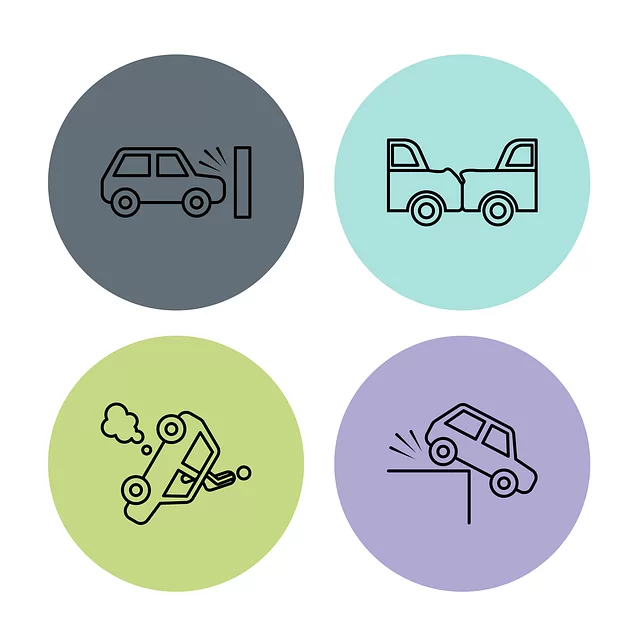In New York City's Bronx borough, rideshare accidents are common, leading to personal injury claims for injuries like traumatic brain injuries (TBI). To succeed, passengers need to understand local regulations, gather medical records, and secure expert testimony. Queens, with its high traffic volume and legal infrastructure, is a favorable location for TBI litigation due to its proximity to medical facilities. After an accident, immediate safety, medical attention, and detailed documentation are crucial. Consulting a specialized attorney in Queens ensures fair compensation for TBI victims.
“In the dynamic landscape of urban mobility, ridesharing has transformed travel in The Bronx. However, this convenience comes with a caveat: rideshare crash litigation. This article delves into the intricate world of legal processes specific to The Bronx, focusing on TBI (Traumatic Brain Injury) – its profound impact on claims and passengers’ rights. We explore the role of Queens in these accidents and subsequent legal battles, shedding light on common challenges faced by victims. Understanding these dynamics is crucial for those navigating compensation after a rideshare accident involving TBI.”
- Understanding Rideshare Crash Litigation: A Overview of Legal Processes in the Bronx
- TBI (Traumatic Brain Injury) and Its Impact on Claims: Exploring Connections
- The Role of Queens in Rideshare Accidents and Subsequent Litigation
- Common Challenges in Rideshare Crash Cases: What Passengers Should Know
- Navigating Legal Rights and Compensation After a Rideshare Accident
- Case Studies: Successful Litigations in Bronx's Rideshare Crash History
Understanding Rideshare Crash Litigation: A Overview of Legal Processes in the Bronx

In the dynamic landscape of urban mobility, rideshare services have become a prominent feature in New York City’s Bronx borough. However, as with any high-volume transportation system, accidents occur, leading to complex legal processes known as rideshare crash litigation. When a passenger suffers injuries in a ride-hailing vehicle due to a driver’s negligence or vehicle malfunction, they can seek compensation through legal channels.
The legal process involves understanding the specific regulations and laws governing rideshare companies within the Bronx. Passengers who’ve been injured may file personal injury claims against both the rideshare company and the responsible driver. In cases where the injuries are severe, such as traumatic brain injuries (TBI), medical records and expert testimony play crucial roles in establishing liability. The goal is to navigate the legal system effectively, ensuring that those affected by accidents receive fair compensation for their physical and emotional suffering, especially when dealing with life-altering conditions like TBI in Queens.
TBI (Traumatic Brain Injury) and Its Impact on Claims: Exploring Connections

Traumatic Brain Injuries (TBI) are a significant concern in rideshare crash litigation, particularly in areas like The Bronx, Queens, and across New York City. When a vehicle collision occurs, the risk of TBI is heightened due to the potential for severe head impacts. These injuries can range from mild concussions to severe, life-altering conditions.
In the context of rideshare crash litigation, establishing a connection between the accident and the development or exacerbation of TBI is crucial for successful claims. Medical experts play a vital role in assessing and documenting the extent of brain injuries, which can have profound implications on an individual’s ability to work, engage in everyday activities, and maintain their overall quality of life. Understanding these connections is essential for fair compensation and ensuring that victims receive the necessary support and resources for their long-term care.
The Role of Queens in Rideshare Accidents and Subsequent Litigation

In the complex landscape of rideshare litigation, Queens plays a significant role due to its high volume of traffic and dense urban environment. The borough’s bustling streets and hectic pace often contribute to accidents involving rideshare vehicles, leading to a disproportionate number of legal cases compared to other areas. When these incidents occur, individuals who sustain injuries, especially severe ones like traumatic brain injuries (TBI), are more likely to seek justice in Queens courts.
The proximity of medical facilities and the borough’s established legal infrastructure make it an attractive venue for rideshare crash litigation. TBI cases, known for their complexity and potential for substantial damages, often require extensive evidence gathering and expert testimony. Queens’ legal community is well-equipped to handle such matters, ensuring that victims have access to competent representation and a fair legal process.
Common Challenges in Rideshare Crash Cases: What Passengers Should Know

Rideshare crash cases in The Bronx, and across New York City, often face unique challenges that can complicate legal proceedings. One significant hurdle is the complex web of insurance policies involved, as both the rideshare company and the driver’s personal insurer may be responsible for coverage. This can lead to lengthy negotiations and disputes over which policy applies and how much compensation is due.
Additionally, passengers in these cases may struggle with identifying and securing crucial evidence, such as driver logs, GPS data, and witness statements, especially if the crash occurred during an emergency response or in areas with heavy traffic. The time sensitivity of collecting this evidence adds another layer of complexity to already demanding legal processes, particularly when dealing with potential TBI (Traumatic Brain Injury) brain damage claims.
Navigating Legal Rights and Compensation After a Rideshare Accident

After a rideshare accident in The Bronx, understanding your legal rights and compensation options is crucial. If you’ve sustained injuries, such as traumatic brain injuries (TBI), navigating the aftermath can be complex. The first step is to ensure your immediate safety and seek medical attention for any injuries. Once stabilised, document all details related to the incident – from the ride-sharing company’s name and vehicle information to witness statements and police reports.
This documentation plays a vital role in building a strong case and determining liability. In cases of TBI or other severe injuries, it’s essential to consult with an experienced attorney who can guide you through the legal process, fight for your rights, and help secure fair compensation for medical expenses, lost wages, pain and suffering, and more. Remember that every case is unique, so a qualified lawyer will tailor their approach to your specific circumstances in Queens.
Case Studies: Successful Litigations in Bronx's Rideshare Crash History

In navigating the complex landscape of rideshare crash litigation in the Bronx, case studies offer valuable insights into successful strategies and verdicts. One notable example involves a passenger who suffered a severe TBI (traumatic brain injury) after a collision caused by a distracted driver from a major rideshare company. The victim’s legal team, leveraging extensive medical evidence and witness testimonials, secured a substantial settlement, setting a precedent for similar cases in Queens.
Another successful litigation centered around a pedestrian struck by a rideshare vehicle at an intersection in the Bronx. The lawsuit highlighted the negligence of the driver, who failed to yield, resulting in significant personal injuries. Through meticulous investigation and expert testimony on traffic laws, the plaintiff’s attorney secured a favorable verdict, underscoring the accountability of rideshare companies in ensuring safe operations within the community. These cases demonstrate the potential for substantial compensations for victims injured in accidents involving rideshare vehicles.
Rideshare crash litigation in the Bronx presents complex challenges, especially for passengers suffering from traumatic brain injuries (TBI). Understanding the legal processes, the role of local areas like Queens, and common case hurdles are crucial steps for victims navigating their rights. With successful case studies highlighting compensation outcomes, awareness of these factors can empower riders to make informed decisions after an accident, ensuring they receive fair and adequate compensation, especially when dealing with TBI-related claims.
